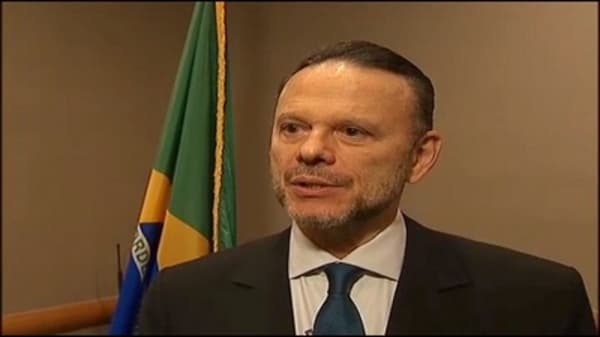Brazil, South America's largest economy, is looking for foreign investment to help shore up its creaking infrastructure. With the country hosting the World Cup in 2014 and the Summer Olympics in 2016, there are lingering questions about whether its airports, roads, trains and power system will be ready for the influx of visitors next year.
To fund desperately needed infrastructure projects, Brazil now is looking for private investment. After presentations in Sao Paulo, the country is taking its infrastructure sales pitch to the United States with a roadshow in New York followed by one in London and potentially two in Asia.




